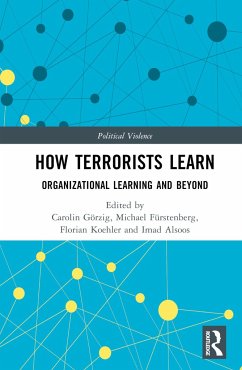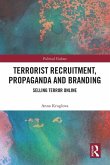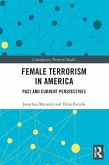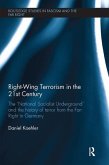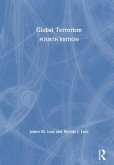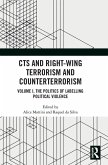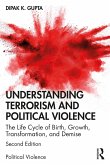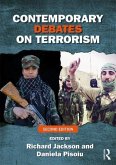This volume helps us understand the transformations of terrorist organisations, and the conflicts they are involved in, by broadening the perspective on what is considered terrorist learning.
Using a variety of methodological approaches and empirical data, the volume offers a look at the clandestine inner lives of groups from different continents and ideological backgrounds in order to explore from whom they learn and how, and what the outcomes are. Their internal and external interactions are examined within their socio-political contexts to illuminate how they adapt to challenges or fail to do so. Unpacking the question of 'how do terrorists learn' helps us to grasp not only changes of violent means of action but also of operational and strategic approaches and, ultimately, even transformations of the ends pursued. The chapters demonstrate that terrorist learning is not principally different from that of other human organisations. The contributors draw on conceptual frameworks of organizational learning, but also broaden the scope beyond the organizational framework to acknowledge the variety of forms of informal and decentralized learning characteristic of much contemporary terrorism.
This book will be of much interest to students of terrorism studies, violent extremism, organisational studies and International Relations.
Using a variety of methodological approaches and empirical data, the volume offers a look at the clandestine inner lives of groups from different continents and ideological backgrounds in order to explore from whom they learn and how, and what the outcomes are. Their internal and external interactions are examined within their socio-political contexts to illuminate how they adapt to challenges or fail to do so. Unpacking the question of 'how do terrorists learn' helps us to grasp not only changes of violent means of action but also of operational and strategic approaches and, ultimately, even transformations of the ends pursued. The chapters demonstrate that terrorist learning is not principally different from that of other human organisations. The contributors draw on conceptual frameworks of organizational learning, but also broaden the scope beyond the organizational framework to acknowledge the variety of forms of informal and decentralized learning characteristic of much contemporary terrorism.
This book will be of much interest to students of terrorism studies, violent extremism, organisational studies and International Relations.
'This volume offers an exceptional collection of well-written and important studies on how terrorist networks acquire and interpret information, store and share knowledge, and actively seek new ways to adapt and innovate. These learning attributes distinguish the relatively few effective terrorists from the many who fail.'
-- James J.F. Forest, UMass Lowell and Editor-in-Chief, Perspectives on Terrorism
'This book makes an important contribution to the steadily growing literature on terrorism learning. The authors build a comprehensive model that explains how violent non-state actors learn, which they apply to a range of terrorist and insurgent case studies. Not content to limit themselves to explaining how terrorists improve their violent repertoires, the authors explore how some groups learn to question-and change-their goals and strategies, including moving away from political violence. How Terrorists Learn will appeal to anyone interested in terrorism studies and homeland security, insurgency and counterinsurgency, organizational adaptation and learning, and security studies.'
-- Michael Kenney, University of Pittsburgh, USA
-- James J.F. Forest, UMass Lowell and Editor-in-Chief, Perspectives on Terrorism
'This book makes an important contribution to the steadily growing literature on terrorism learning. The authors build a comprehensive model that explains how violent non-state actors learn, which they apply to a range of terrorist and insurgent case studies. Not content to limit themselves to explaining how terrorists improve their violent repertoires, the authors explore how some groups learn to question-and change-their goals and strategies, including moving away from political violence. How Terrorists Learn will appeal to anyone interested in terrorism studies and homeland security, insurgency and counterinsurgency, organizational adaptation and learning, and security studies.'
-- Michael Kenney, University of Pittsburgh, USA

